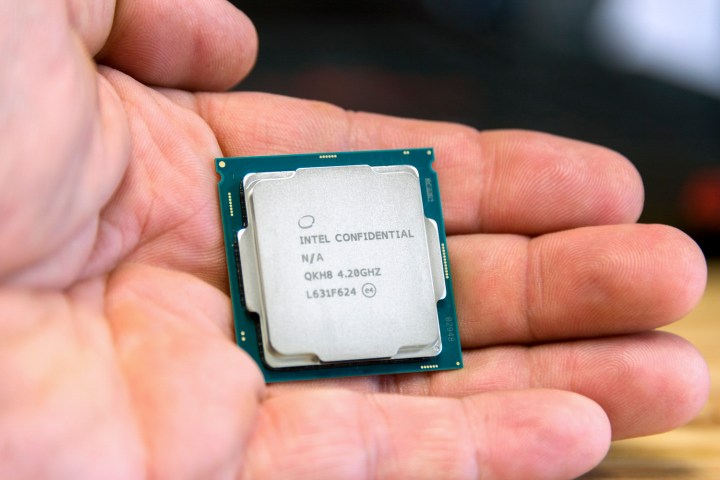
The next-generation of Intel CPUs isn’t going to be its long-awaited Cannon Lake design, which drops the die size to 10nm, but instead will be a refresh of the 8th-generation. New leaked details suggest they will be a little faster than their predecessors, with a slight increase to clock speed. The absence of details on top end chips does suggest Core i7 CPUs could have a higher core-count than previous processors.
AMD’s launch of the Ryzen CPU line in 2017 lit a fire under Intel like we haven’t seen in a long time. It increased core counts in its mainstream CPUs for the first time in years and even rushed out a (bogus) supercooled 28-core chip showcase at Computex to try and steal AMD’s Threadripper 2 thunder. It may be that the 9th-gen refresh is another attempt to combat AMD, which launched a Zen+ version of its Ryzen CPUs earlier this year.
Although Intel hasn’t made any kind of official announcement about its 9th-gen chips, it did leak a couple of documents which were rather revealing. The first showed up in a microcode revision document for Spectre vulnerabilities. It has since been edited, but as with everything that lands on the internet, someone grabbed a screenshot of it — this time it was Videocardz.
The CPUs listed under Coffee Lake S (6+2) includes the i5-9400, i5-9400T, i5-9500, i5-9600, and i5-9600K. The i3-9000 and i3-9100 were listed under the Coffee Lake S (4+2) category. The lack of mention of any Core i7 CPUs suggests that it’s possible that the higher-end mainstream CPUs will offer eight-cores, but that’s pure speculation at this point.
Another document leaked by Intel and since removed, is a much more detailed specifications document. Once again grabbed by Videocardz, it confirms that the Intel 9th-gen chips are refreshes of existing 8th-gen hardware. It also tells us that we can expect slight clock speed boosts because of that, with base clocks at the low end being nudged up by 100MHz, while turbo clocks at the top end saw a slightly more impressive 200MHz increase.
Core counts, power draws, and cache sizes all stay the same across generations, so it may be that the Intel 9th-generation CPUs don’t offer a huge performance improvement over existing CPUs from the 8000 series.



